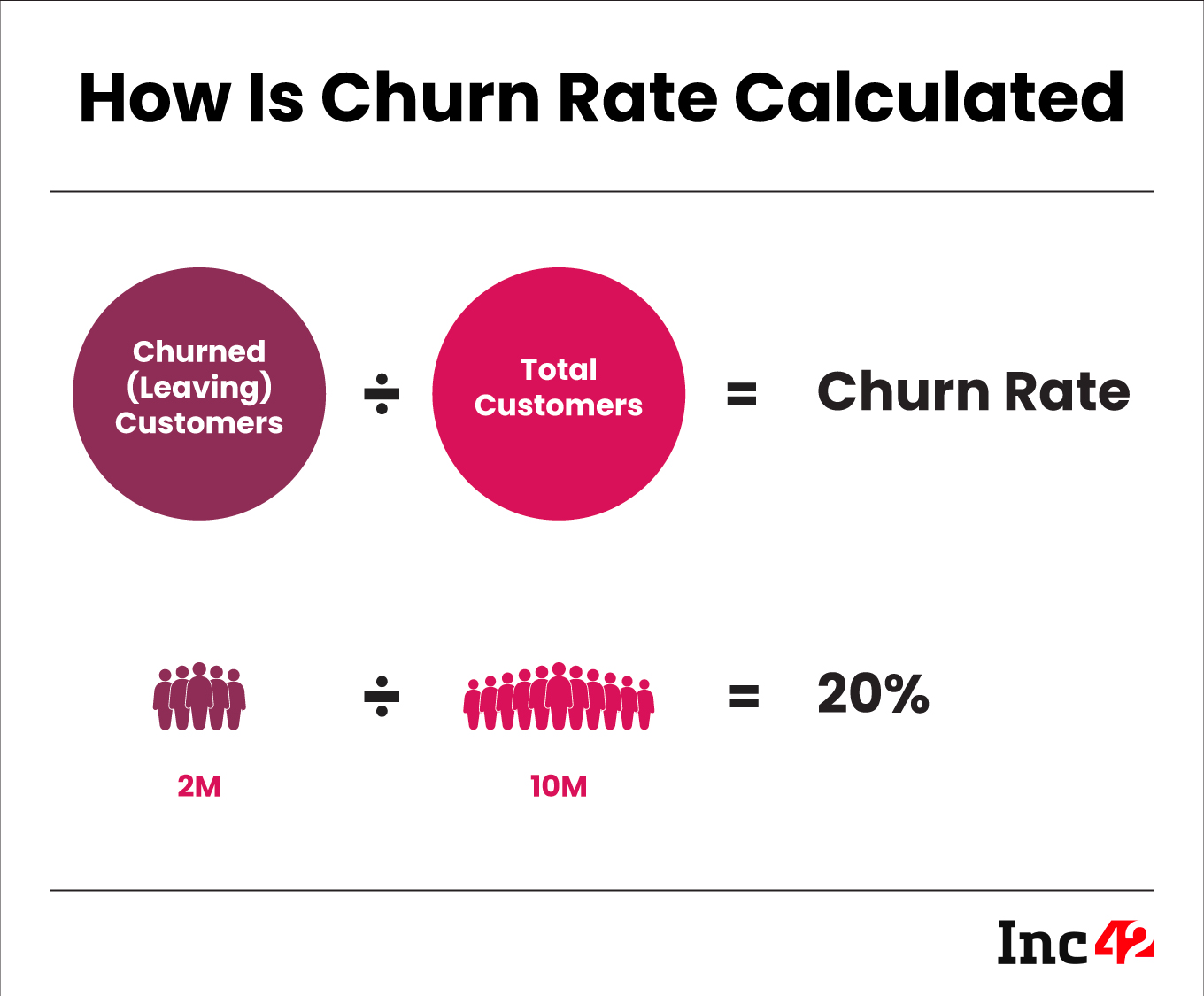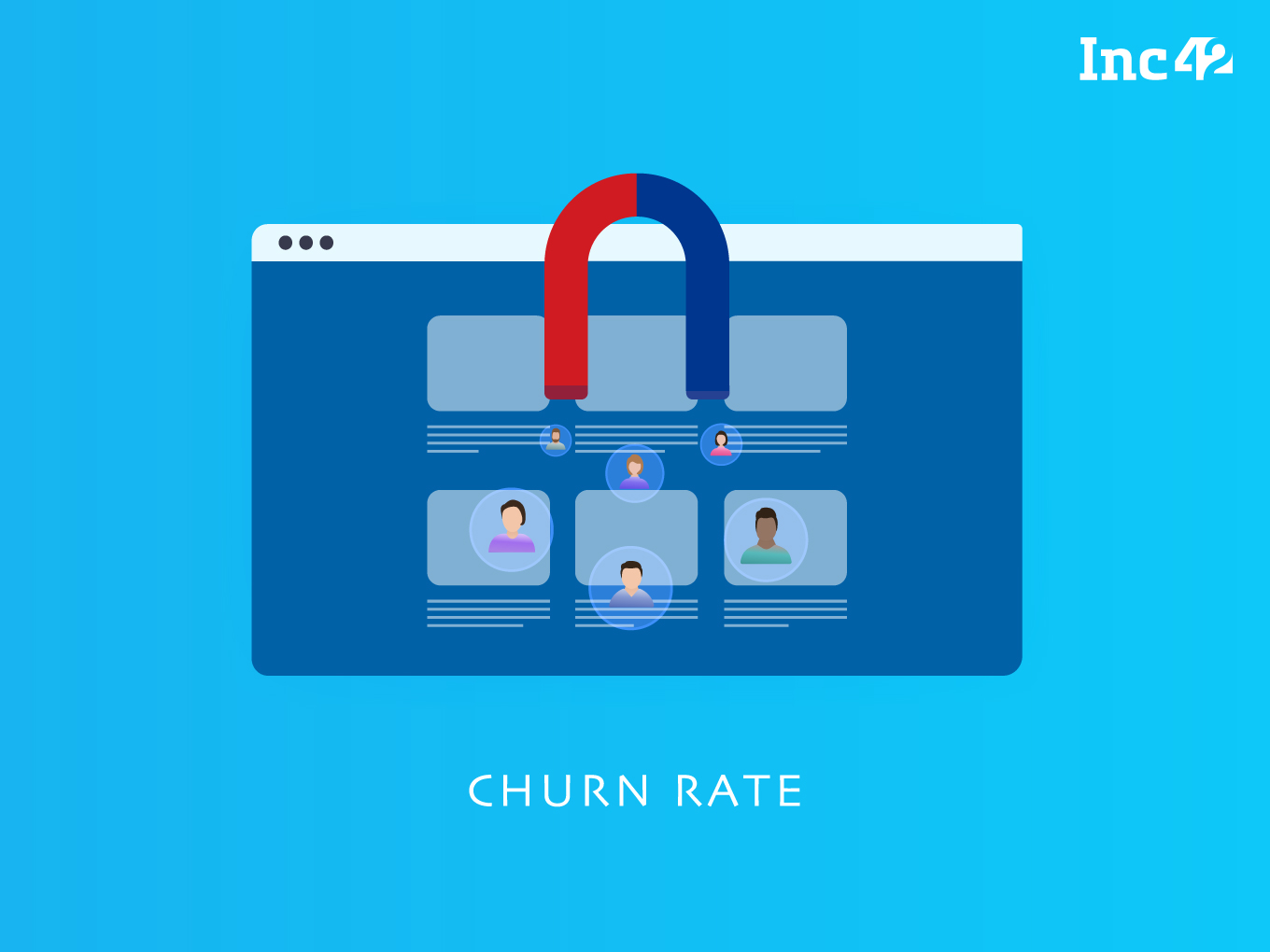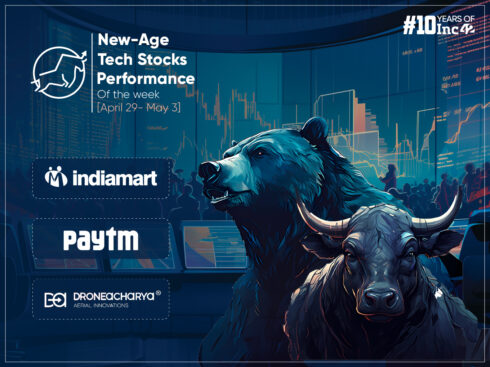What Is Customer Churn Rate?
The customer churn rate is a critical metric that evaluates how well a brand retains its customers. It represents the percentage of customers who stop making purchases or using a brand’s products or services over a given period. For D2C companies, understanding the churn rate is vital, as retaining existing customers can be more cost-effective than acquiring new ones.
How To Calculate Customer Churn Rate?
Calculating the customer churn rate for D2C brands is straightforward. To determine the churn rate for a specific period, use the following formula:
Churn Rate = (Number of Customers Lost in the Period / Total Number of Customers at the Start of the Period) * 100
For example, if a D2C brand had 10,000 customers at the beginning of the quarter and lost 500 customers during that period, the churn rate would be:
Churn Rate = (500 / 10,000) * 100 = 5%

How Is Customer Churn Rate Different From Growth Rate?
- Churn Rate: The churn rate, also known as the customer attrition rate, is the percentage of customers who stop using a product or service during a specific period. It measures the rate at which customers discontinue their relationship with a company or brand. A higher churn rate indicates a higher rate of customer loss, which can have a negative impact on a business.
Example of Churn Rate: The churn rate represents the percentage of subscribers who cancel their subscriptions within a specific period. Let’s say that in a given month, a company had 500 subscribers at the beginning of the month. During that same month, 50 subscribers decided to cancel their subscriptions. The churn rate for that month would be (50 / 500) * 100 = 10%. This means that 10% of the initial subscribers churned or cancelled their subscriptions during that month.
- Growth Rate: Growth rate, on the other hand, measures the increase in a company’s revenue, customer base, or market share over a given period. It is an indicator of business expansion and success. A positive growth rate suggests that the company is acquiring new customers or generating more revenue at a faster pace than the churn rate.
Example of Growth Rate: Consider an ecommerce platform in India that had 2 Mn active customers at the beginning of the year. By the end of the year, they successfully acquired 5,00,000 new customers, increasing their customer base to 2.5 Mn. To calculate the growth rate:
Growth Rate = ((2.5 million – 2 million) / 2 million) * 100 = 25%
In this example, the growth rate for the ecommerce platform is 25%, indicating a significant increase in their customer base over the course of the year.
What Are Different Benchmarks For Customer Churn Rate?
Benchmarks for customer churn rate among D2C brands can vary depending on factors such as industry, business model and product type. For subscription-based D2C companies like Zomato Gold, Licious, The Man Company, Cure.fit, etc., a lower churn rate is typically expected due to the recurring revenue model. On the other hand, one-time purchase D2C brands may experience higher churn rates.
As a rough guideline, a churn rate below 5% is often considered excellent for D2C companies. However, it’s crucial to compare the churn rate with industry benchmarks to gain a more accurate understanding of how well a brand is retaining customers.
How To Improve Customer Churn Rate For Your D2C Business?
Improving the customer churn rate is essential for the long-term success of D2C brands. Here are some strategies to enhance customer retention:
- Personalised Customer Experience: Leverage customer data to understand individual preferences and offer personalised recommendations. Tailoring the shopping experience to customers’ needs can increase loyalty.
- Proactive Customer Support: Provide excellent customer support to address issues and concerns promptly. Engaging with customers before problems escalate can lead to higher satisfaction and retention.










